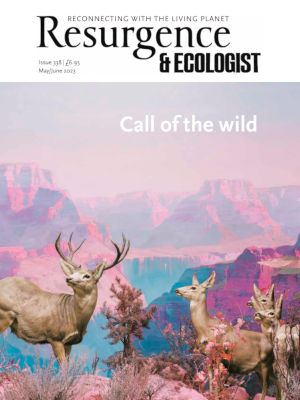This book’s title puns on the ground as a repository of prehistoric secrets and the writer’s experience of being grounded by the lockdowns imposed by the UK government in the spring of 2020 in the face of the Covid-19 global pandemic. A twinned perspective organically emerges, offering both a speculative deep time journey into our Neolithic and even Mesolithic past, and a meditation on our contemporary relationship with Nature, which for many people became heightened as we learned, in lockdown, to slow down and pay more attention to the natural world around us.
James Canton has long been fascinated with the past and how it impacts the imaginary of the present. His book Ancient Wonderings: Journeys into a Prehistoric Landscape reveals his irrepressible fascination with all the wonders our landscapes can bring to light. More recently, in The Oak Papers, his connection with the eponymous trees and their cultural centrality to human societies – not just in Britain, but throughout the world – put it into fruitful dialogue with the late Roger Deakin’s posthumously published Wildwood. Grounded begins with visits to religious and sacred sites. Canton is deeply affected by what Larkin called the “unignorable silence” of the church at Little Gidding, Cambridgeshire, which also inspired the final poem of T.S. Eliot’s Four Quartets, but is unpleasantly disturbed by the sheer number of visitors to the shrine at Walsingham in Norfolk. Realising how his sense of the sacred is limited by associations with “churches, chapels and a largely Christian vision”, he has an epiphany: “To understand the spiritual nature of the environment around me, I would need to appreciate a far wider sense of the sacred.”
No sooner has this journey begun, however, than it shudders to a halt with the imposition of the UK’s first coronavirus lockdown. Undeterred, Canton makes the most of this opportunity by turning his attention to the sacred nature of fire within hearth and home. What is liberating about this part of the journey is that he forsakes his car in favour of walking and cycling in his local area. He crosses a stream, where he makes votive offerings. He resumes his acquaintance with some of the oak trees that had sheltered and nurtured him in The Oak Papers. He and his daughter Molly are “utterly captivated” by finding a great crested newt while pond dipping.
He meets up with his friends Mark and Selfie in the Suffolk village of Kersey, where, socially distanced, they drink tea and chat. The warmth of their relationship bursts from the page, as do their playfulness and their infectious sense of curiosity about the world around them. Surely someone should commission a TV series about this unlikely triumvirate: Three Men in a Boat meets The Detectorists, with a splash of Tony Robinson’s Time Team thrown in for good measure.
With lockdown restrictions lifted, Canton journeys to a wide range of sacred sites throughout Britain, including the Coneybury Anomaly near Stonehenge, a meeting place for both Mesolithic hunter-gatherers and their Neolithic farming descendants. He combines historical research with personal responses to these sites, ruminating on the imagined stories they conceal.
The book concludes with a meditation on sacred offerings retrieved from peat bogs, riverbeds and fields. From the enigmatic Garboldisham Macehead to the intriguing Dagenham Idol, they are all part of the tapestry of “intoxicating delight and wonder at journeying into the prehistoric past” that has spurred Canton not only to make these journeys but also to write one of the most luminous and illuminating books on our landscape I have read for many a year.
Grounded: A Journey into the Landscapes of Our Ancestors by James Canton. Canongate, 2023. ISBN: 9781838855871.







